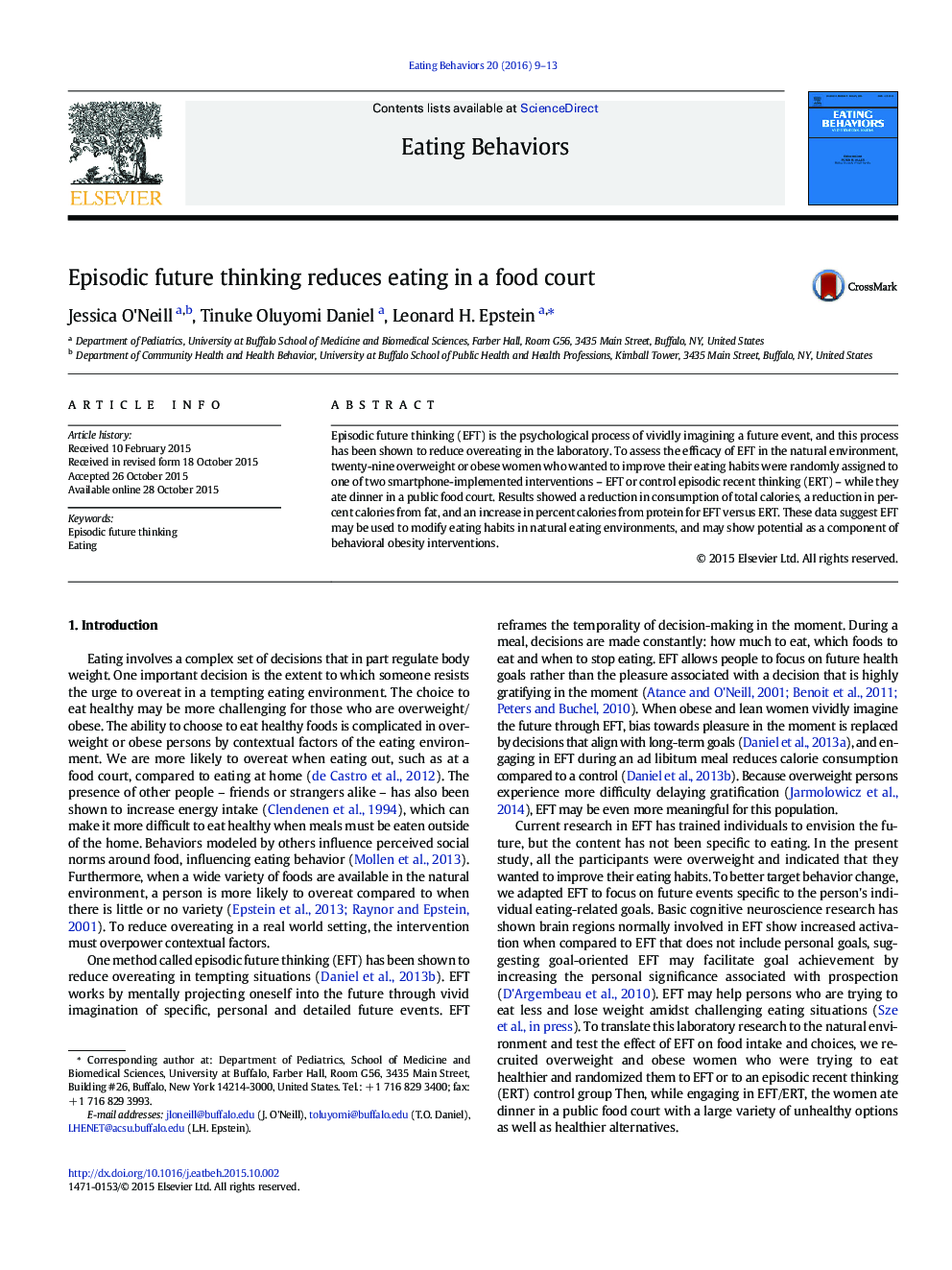| Article ID | Journal | Published Year | Pages | File Type |
|---|---|---|---|---|
| 906263 | Eating Behaviors | 2016 | 5 Pages |
•A method for translating episodic future thinking (EFT) to a food court is proposed.•EFT and a control are successfully implemented using a smartphone to deliver audio cues.•EFT significantly reduces energy intake and switches food choices, lowering fat and raising protein percent of calories.•EFT may be an important adjunct to enhance existing obesity treatment interventions.
Episodic future thinking (EFT) is the psychological process of vividly imagining a future event, and this process has been shown to reduce overeating in the laboratory. To assess the efficacy of EFT in the natural environment, twenty-nine overweight or obese women who wanted to improve their eating habits were randomly assigned to one of two smartphone-implemented interventions – EFT or control episodic recent thinking (ERT) – while they ate dinner in a public food court. Results showed a reduction in consumption of total calories, a reduction in percent calories from fat, and an increase in percent calories from protein for EFT versus ERT. These data suggest EFT may be used to modify eating habits in natural eating environments, and may show potential as a component of behavioral obesity interventions.
